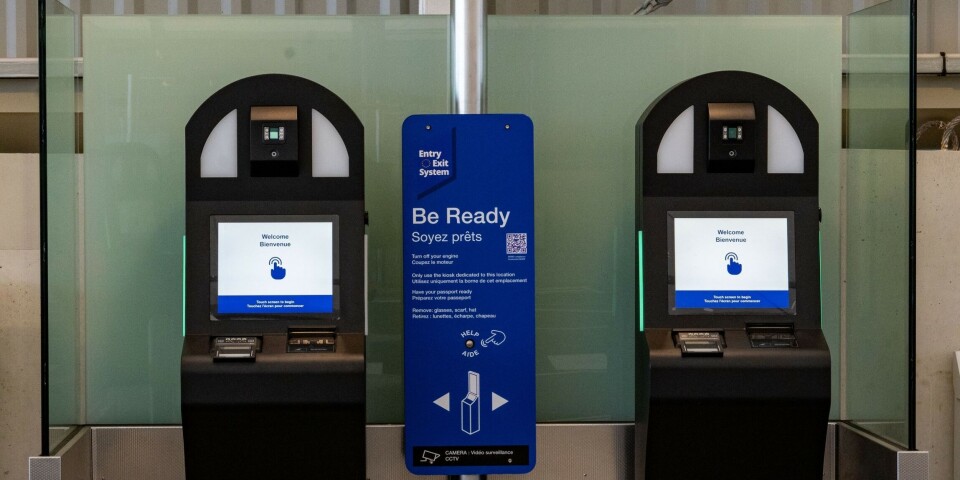Learning French: what does n’importe quoi mean and when should it be used?
This essential expression features in the catchphrase of a famous French prankster
You can say n’importe quoi when someone is talking a load of nonsense
Copyright (c) 2018 Elnur/Shutterstock. No use without permission.
This handy phrase pops up all the time in everyday French, referring to something non-specific or absurd.
You might think that we are talking nonsense or saying n’importe quoi, but believe us, you will be sliding this mini expression into casual conversation before you know it.
We will take a look at the many ways of using n’importe quoi and how different contexts can impact its degree of formality.
What does n’importe quoi mean?
This peculiar expression which literally translates as, no matter what, can be interpreted in several different ways.
It is used when talking about something indefinite or non-specific, like the English words: anything, or whatever.
It is also commonly said informally, in reference or in reaction to something absurd, useless or meaningless.
Variations of this phrase include:
Tout et n’importe quoi - Anything and everything
C’est du n’importe quoi - It is nonsense/ridiculous
C’est du grand n’importe quoi - It is a load of rubbish
C’est nimp’ - It is nonsense/ridiculous (n'importe quoi being shortened to nimp’ by younger generations)
Read also: Four French words to fill gaps in vocabulary that mean 'the thing'
When do you say n’importe quoi?
It can be used as a standalone response to an absurd statement:
You will often hear it after dire/raconter or faire:
Tu n'as clairement pas fait de recherches, tu racontes n'importe quoi. - You clearly haven’t done any research, you are talking rubbish.
Je veux que tu descendes de ce mur, c'est dangereux, tu fais n'importe quoi. - I want you to get down from that wall, it is dangerous, you are acting crazy.
It can also relate to something shocking and unacceptable:
It could be used as a filler phrase when thinking of a random example:
Si on part en vacances dans une grande ville comme, je dis n’importe quoi, Lyon par exemple, on n'aura pas besoin de louer une voiture. - If we go on holiday to a big city like, let’s say Lyon for example, we would not need to hire a car.
You can even describe something as not being n’importe quoi, to imply it is special or of good quality, rather than a random choice:
This phrase is also used to refer to something indefinite or non-specific:
You can also replace quoi with an interrogative adjective, adverb or pronoun to adapt the meaning:
N’importe comment - Any which way
N’importe quel/lequel - Any which one
N’importe où - Anywhere
N’importe quand - Any time
N’importe qui - Anyone
To whom do you say n’importe quoi?
N’importe quoi is considered informal when describing something as being ridiculous or unbelievable, and mainly appears in spoken French.
It is considered neutral language when referring to something non-specific (like the word: anything) but you should shift between the casual tu and more formal vous forms, depending on the situation.
Remember there are subtle differences between how this word can be interpreted. To avoid causing offence, make sure to judge a situation carefully before saying n’importe quoi.
Cultural references to n’importe quoi
N’importe quoi features in the catchphrase of famous French prankster, Rémi Gaillard.
With over 7.4 million subscribers on YouTube, he has been a household name in France since the early 2000s after performing pranks on unsuspecting members of the public, repeating: “C’est en faisant n’importe quoi, que l’on devient n’importe qui !” (It is by doing whatever that we become whoever).
Read more: The life and career of Rémi Gaillard: French comedy's YouTube sensation
This phrase is also the title of a song by Florent Pagny which held France’s top charting spot for two months in 1988. It has since been covered by other famous French singers such as Jean-Jacques Goldman and Christophe Maé.
The chorus goes like this:
Tu crois (You think)
Que j'vais rester planté là (That I’m just going to stand here)
À te voir partir dans tes délires (Watching you go out of your mind)
Et te laisser faire n'importe quoi ? (And let you spin out of control?)





























